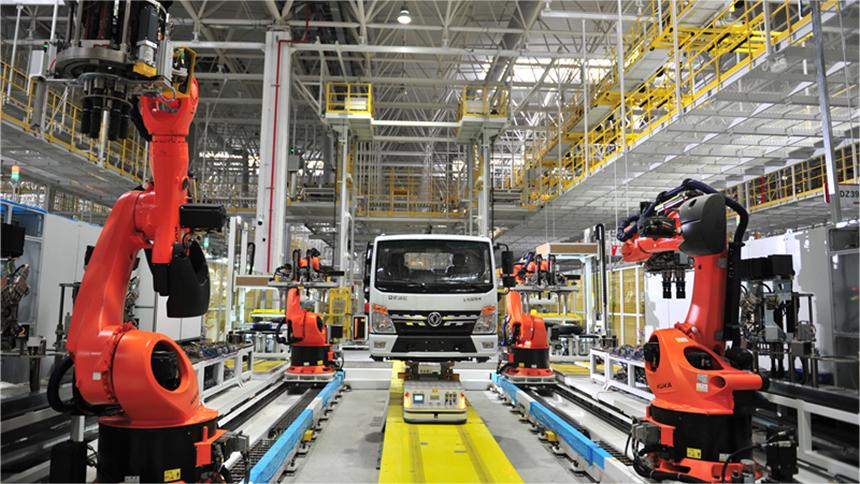China-Australia mutual popularity on the rise, people call for strengthened cooperation in new energy, climate change: GT survey
Editor's Note:
Chinese Premier Li Qiang arrived in Australia on Saturday for an official visit, on the second leg of his ongoing three-nation tour. His visit also came on the occasion of the 10th anniversary of the establishment of the China-Australia comprehensive strategic partnership.
In recent years, China and Australia have experienced a bumpy relationship, but the bilateral ties are now stabilizing. Given the importance of the China-Australia relations, the Global Times Institute (GTI) conducted a survey on China-Australia relations, jointly with the Australian Studies Centre of Beijing Foreign Studies University. This year marks the fourth year of the survey (2020, 2021, 2022, 2024) and it is the first time that questionnaires have also been directed at the Australian public.
The survey was conducted across 16 cities in China, targeting ordinary residents aged 18-69. The selection of cities - Beijing, Shanghai, Guangzhou, Tianjin, Shenzhen, Nanning, Harbin, Nanchang, Lanzhou, Xi'an, Shenyang, Wuhan, Chengdu, Zhengzhou, Qingdao, and Kunming - ensured a balanced geographical distribution. The survey also targeted the general public aged 18-70 across the eight states and territories of Australia - the Australian Capital Territory, New South Wales, Northern Territory, Queensland, South Australia, Tasmania, Victoria, and Western Australia.
An online questionnaire method was employed based on a large-scale membership sample database. The execution period was from May 26 to June 5, 2024. A total of 1,200 valid samples were collected in China, and 1,075 valid samples in Australia.

Chinese Premier Li Qiang arrives in Adelaide, Australia, June 15, 2024, for an official visit to Australia. During his stay, Li and Australian Prime Minister Anthony Albanese will co-chair the ninth China-Australia Annual Leaders' Meeting and jointly attend a China-Australia CEO Roundtable Meeting. (Xinhua/Rao Aimin)
Increasing positive sentiment
As China-Australia relations stabilize, mutual goodwill between the peoples of both countries is on the rise. According to the latest survey jointly conducted by the GTI and the Australian Studies Centre of the Beijing Foreign Studies University, both Chinese and Australian respondents have shown increased positive feelings toward each other's countries.
The Chinese respondents have reported a significant increase in their favorable perception of Australia. Compared to the last survey in 2022, the average goodwill score has risen by 7 points to 69.2 in 2024, which is in alignment with the policy adjustment of the current Anthony Albanese government.
Similarly, the Australian respondents have shown an upward trend in their goodwill toward China. The survey reveals an average goodwill score of 40.9, slightly higher than the recent data from the Lowy Institute polls. The Lowy Institute data itself indicates a stabilization and slight increase in positive sentiment toward China from 2022 to 2024, following a significant decline in 2019.
Chen Hong, director of the Australian Studies Center at the East China Normal University, told the Global Times that Chinese people have always had a favorable impression of Australia. However, the actions of the previous Scott Morrison government wantonly destroyed the China-Australia relationship, impacting Chinese people's impressions of Australia.
"Despite this, Chinese perceptions of Australia remain relatively positive. Therefore, after the improvement of China-Australia relations, Chinese respondents' favorable impression of Australia has risen, which is a natural development and confirms the positive attitude of the Chinese people toward Australia," Chen said.
Liu Qing, vice president at the China Institute of International Studies, told the Global Times that the improvement in China-Australia relations is mainly due to increased high-level exchanges, changes in Australia's domestic public opinion, and increased commercial exchanges.
"In terms of high-level exchanges, confidence has been restored between the two sides; in terms of public opinion, there has been a change in Australia's domestic sentiment toward restoring relations with China since Albanese took office; and in terms of commerce, the situation for Australian businesses and investments has improved, and some issues have been resolved through negotiation," Liu said.
However, John Queripel, an Australian historian and author, warned that numerous Australian politicians, the Australian intelligence agencies, and mainstream media are at odds with the reality of China. Fear-mongering regarding China has been very powerful in Australia.
"This is why such visits as [the current one] by Premier Li Qiang are so important. They break down stereotypes, and foster deeper understanding so necessary for countries bound by geographical location and being economically complementary," Queripel told the Global Times.

In what areas are you more optimistic about the future cooperation between China and Australia? Graphics: Liu Xidan/GT
Strong support for strengthened economic cooperation
The GTI survey also highlights strong public support in both China and Australia for enhanced economic cooperation between the two countries. Respondents from both countries recognize the complementary nature of their economies and the vast potential for future collaboration.
Despite strategic concerns in Australia about China, the survey indicates strong public support for closer economic ties. Nearly two-thirds (64.7 percent) of the Australian respondents agreed that China plays an irreplaceably positive role in Australia's economic development, while nearly 60 percent believed that Australia needs to develop closer economic links with China.
Among the Chinese respondents, 79.9 percent expressed "strong support" or "support" for strengthening economic cooperation with Australia. Similarly, 63.5 percent of the Australian respondents shared this sentiment. Furthermore, there is significant support for further enhancing the China-Australia Free Trade Agreement, with 76.1 percent of the Chinese and 53.6 percent of the Australians in favor.
Chen said that the Chinese market is huge and growing rapidly, and economic cooperation between the two countries brings tangible benefits to the people of both countries.
"The Morrison government's attempts to diversify its markets have failed because China's market size and growth rate are irreplaceable. Politicizing economic issues not only fails to solve problems but also worsens bilateral relations. After the Australian Labor Party came to power in May 2022, it began to clearly differentiate its China policy from that of the Morrison government, fostering goodwill and promoting the improvement of bilateral relations. China has also shown an open and flexible attitude in economic and trade issues, engaging in rational and pragmatic dialogue. These positive actions have been welcomed by the Australian business community," Chen noted.
The survey found that the Chinese respondents highlighted Australia's strengths in tourism, climate change, environmental protection, social welfare, higher education, public health, and agricultural technology. Meanwhile, Australian respondents pointed to China's expertise in high technology, infrastructure, and the digital economy as areas worth learning from.
Both groups of respondents identified several key areas for future cooperation - international trade, climate change and environmental protection, transnational tourism, energy, and high-tech industries. Support for cooperation in climate change and renewable energy is particularly high, with widespread approval for enhanced people-to-people exchanges, according to the survey result.
Queripel told the Global Times that China has made great achievements in the clean-energy sector as well as in its efforts to counter desertification, and a vast potential in this field can be explored.
"In a time when growing numbers of Australians are expressing fear about climate change, this good news story [about China's green efforts] needs to be told," Queripel said. "Electric vehicles (EVs) are another area where China has taken the lead. In comparison, Australia, having no domestic automobile industry, represents an open market for Chinese exports of EVs."
Hope for strengthened bilateral relations
A significant majority of the respondents - 88.7 percent in China and 64.9 percent in Australia - hope that bilateral relations will become closer and friendlier, or at least remain unchanged. More than half of the respondents from both countries also believe that improved relations would have a "very helpful" or "quite helpful" impact on maintaining stability and security in the Asia-Pacific region.
Queripel told the Global Times that the Pacific needs, as its name implies, to be a zone of peace. In 1986 the South Pacific Countries declared the South Pacific to be a nuclear-free zone. Australia was a signatory to that treaty. "However, other nations from outside the region have had a long history of using the region for nuclear tests, such was their disregard for its peoples," he criticized.
The survey revealed that 55.7 percent of the Australian respondents consider the US as or "maybe" the main factor constraining Australia to develop friendly relations with China.
Queripel believed that the US stands as the major hindrance to Australia developing fruitful relations with China. "The Australia-US alliance has never been in Australia's interest, but instead has dragged Australia into wars in which Australia should have had no part. Now the US is calling Australia into a military alliance squarely aimed at China. One which could disastrously end in war. Not only is this dangerous, it also runs entirely counter to Australia's self-interests," he said.
"Given the size of China, both economically and militarily, it would be foolish on Australia's part not to work with China. China is the preeminent power in the Asia-Pacific region, though it has projected that power in a benevolent manner, something recognized by many countries in the region. Cooperation should be unavoidable," he stressed.
The survey also reveals differing attitudes toward international relations. The Chinese respondents expressed confidence and openness typical of a "great power citizens," with 67.3 percent viewing Australia as an economic partner, an increase of 2 percentage points from 2022. Additionally, 72.9 percent of the Chinese respondents consider Australia a "middle power," up from 68.1 percent in 2022.
By contrast, the surveyed Australians showed a degree of anxiety and strategic distrust, reflecting the geopolitical and economic considerations in their China policy. A significant portion of the Australian respondents still view China as a "security threat" (47.7 percent) or a "competitor" (13.7 percent), with only 38.6 percent considering China an economic partner, according to the survey.
Liu told the Global Times that Chinese people tend to view Australia as an economic partner. However, while Australia also sees China as an economic partner, it is concerned about the potential security challenges China may pose, showing anxiety and strategic distrust.
"This reflects the conflicts and dilemmas between the two countries in geopolitical and economic considerations. In Australia's China policy, this is manifested as indecision. This ambivalence in Australia is not a new phenomenon but a long-standing policy dilemma. Data show that Australia's foreign strategy is influenced by the US. China has never seen Australia as a threat, and there are significant differences in security perceptions between the two sides. Therefore, it is necessary to further strengthen cultural exchanges between China and Australia to reduce misunderstandings, increase transparency, and promote the long-term development of bilateral relations," Liu said.
Despite these differences, the survey indicates the potential for pragmatic and creative cooperation in various fields. A notable 69.4 percent of the Chinese respondents and 53.1 percent of the Australian respondents "strongly support" or "support" joint China-Australia foreign aid projects in the Pacific and Asian regions.
Chen suggested that "to further promote the development of China-Australia relations, there needs to be a spiritual connection and joint efforts between the peoples of both countries."
"China welcomes Australian people to come to China to understand the real situation in China. At the same time, Australia should also be open to education, technology, and cultural exchanges from China. Only through mutual openness can mutual trust be established, which will promote cooperation and achieve mutual benefit," he said. "The results of the public opinion surveys indicate that enhanced understanding and trust is the key to promoting the development of China-Australia relations."
Photos
Related Stories
- Chinese premier says communication, dialogue key for China, Australia to enhance understanding
- Premier Li says greater development of China-Australia ties needs joint efforts
- Chinese premier to visit New Zealand, Australia, Malaysia
- Chinese envoy to Australia suggests businesses to promote bilateral ties
- Australian commits funding to repair historic Chinese parade loong
- Australian smart energy industry looks to partnership with China
Copyright © 2024 People's Daily Online. All Rights Reserved.









